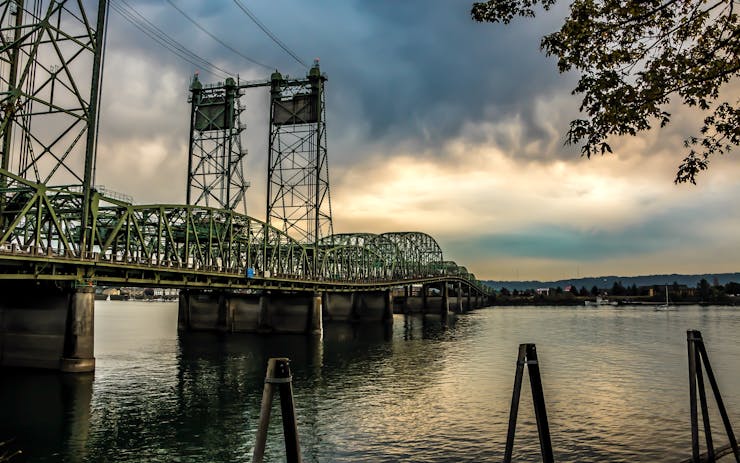The short answer, of course, is no.
Federal law prohibits transporting any federally restricted substance across state lines, and cannabis clocks in at Schedule I on the Controlled Substances Act, alongside the likes of heroin and LSD.
What happens, however, when you’re transporting cannabis across state lines between two legal states, like Oregon and Washington, or California and Nevada?
“You’re still, by crossing the state lines, falling within the jurisdiction of the federal government. Even if cannabis is legal in both states, it’s that crossing of the border that puts you at risk.”
“From a legal perspective, it’s very cut and dried,” Alison Malsbury, a Canna Law Group attorney explains. “In practice, however, it’s very ambiguous.”
“The risks you’re running in theory are much bigger than in practice. You’re still, by crossing the state lines, falling within the jurisdiction of the federal government. Even if cannabis is legal in both states, it’s that crossing of the border that puts you at risk,” Malsbury says.
Despite federal risks, however, the reality may be a bit more reassuring. “In practice, the chances of feds or the DEA sitting at the border waiting to catch someone–that’s just not happening,” she points out. “It’s not practical or worth their time.”
“What’s more likely,” she contends, “is that you’ll find yourself in another state where cannabis is not legal and, if you end up facing charges, taking cannabis across the border is considered an aggravating factor.”
Another area to watch out for, even within a legal state, is nearing any border crossing between countries. We’re not even talking about crossing the border–simply entering the border crossing zone is enough to land you in hot water.
“We had a client transporting cannabis within the state that got to the border crossing in Canada,” Malsbury elaborates. “You fall within the federal jurisdiction without even crossing the border, and they had everything seized. Once you fall within the gambit of Customs, a whole other set of rules apply. It was one producer-processor to another, but they had everything seized. This is just one example of how the federal government is going to continue functioning.”
Section 812 of Title 21 of the U.S. Code, the Schedule of Controlled Substances makes no distinction between a legal state, a medical state, or an illegal state. Violating this section is a federal crime and could earn you a drug trafficking charge, even for the lowest tier of cannabis.
Shop highly rated dispensaries near you
Showing you dispensaries nearFor the possession of:
- 1 kilogram or less of hash oil
- 10 kilograms or less of hashish
- 1 to 49 cannabis plants
- Less than 50 kilograms of cannabis flower
The penalties are:
- 1st offense: up to 5 years in federal prison and a fine of $250,000 to $1 million
- 2nd offense: up to 10 years in federal prison and a fine of $500,000 to $2 million
Basically, it doesn’t matter if it’s a gram or 50 kilograms of cannabis–the penalty remains the same.
Indeed, even some legalized states are starting to carry penalties for transporting cannabis across state lines.
“In practice, the chances of feds or the DEA sitting at the border waiting to catch someone–that’s just not happening. It’s not practical or worth their time.”
Oregon passed House Bill 4014 expressly forbidding the import of cannabis from another state, as well as exporting cannabis across state lines. Violating this law by importing or exporting:
- Up to an ounce of cannabis is punishable by a Class B violation: $260 fine
- Over an ounce of cannabis is punishable by a Class A misdemeanor: $6,250 fine
- Over 16 ounces of cannabis is punishable by a Class C felony: $125,000 fine and up to 5 years imprisonment
In Nevada, NRS 453.321 states that it is unlawful for a person to“import, transport, sell, exchange, barter, supply, prescribe, dispense, give away or administer a controlled or counterfeit substance”:
If the substance is considered Schedule I, you could face a Category B felony, punishable by $10,000 fine and 2 to 10 years in prison.
California’s new legalization law, Proposition 64, makes it clear:
26080. (a) This division shall not be construed to authorize or permit a licensee to transport or distribute, or cause to be transported or distributed, marijuana or marijuana products outside the state, unless authorized by federal law.
What would it take for interstate cannabis commerce to become a reality? “In order for that to be possible, we would have to see federal legalization,” Malsbury informs Leafly.
Are we likely to see that in the near future?
“Under the current administration? Probably not.”





